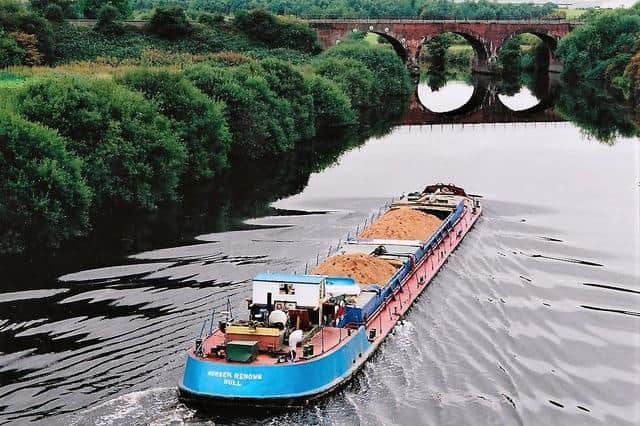Aire and Calder Navigation: Ban on using barges lifted as fish deaths cause still a mystery
The Canal and River Trust asked operators to reduce the weight of their barges after complaints over numerous fish deaths on a stretch of the Aire and Calder Navigation near Knottingley.
Despite barges running at slower speeds and with lighter loads, the fish deaths still occurred and the trust decided to suspend commercial operations to investigate.
Advertisement
Hide AdAdvertisement
Hide AdThe CRT took silt samples along the canal but said yesterday that they’d found nothing that gave cause for concern.


It is allowing commercial traffic to resume with reduced loads, and will be dredging more sections of the canal in April to “support ongoing freight movements”.
Barge operator John Branford, who transports marine aggregates from Hull to Leeds, said he’d had no compensation for being stopped from using the canal over a three month period.
That followed an earlier nine-month stoppage because of a breach.
Advertisement
Hide AdAdvertisement
Hide AdThe fifth generation operator is now preparing to go again with a 400-tonne load, but a massive spike in diesel prices from 70p to £1.15 a litre is a huge worry.
The CRT said it took the decision to stop freight following reports in December 2021 and January 2022 of fish deaths.
The investigation led by the CRT’s environmental and fisheries teams have not identified “anything in the silt samples we have taken which would explain the fish deaths or which give us cause for concern” said Sean McGinley, director Yorkshire and North East.
Mr McGinley said: “Whilst we cannot establish definitively the cause of the fish deaths reported, we believe it may be attributable to the greater density of fish, shoaling together in lower winter temperatures, being more susceptible to propellor strikes.
Advertisement
Hide AdAdvertisement
Hide Ad“We are confident that as temperatures continue to rise, the potential for harm to fish should reduce dramatically.”
Mr McGinley said as a precautionary measure until the further dredging was completed they were asking freight barges to load to a maximum depth of 7ft (2.13m) and travel at slower than normal speeds through the stretch to minimise the risk to fish.
He said: “We will continue to monitor the situation carefully.”
The Angling Trust said: “Having been instrumental in getting this ‘fish mincing’ barge suspended, pending proper trials and investigations, the Angling Trust is disappointed to hear that CRT is proposing to allow it to resume operations without providing us, local anglers, and the public with the evidence showing how future fish deaths will be avoided.
Advertisement
Hide AdAdvertisement
Hide Ad"We are not opposed to the canal being used to transport freight but where there is a proven and acknowledged link between specific vessels and fish deaths it is not acceptable for the CRT to allow these vessels to simply continue killing fish.”
